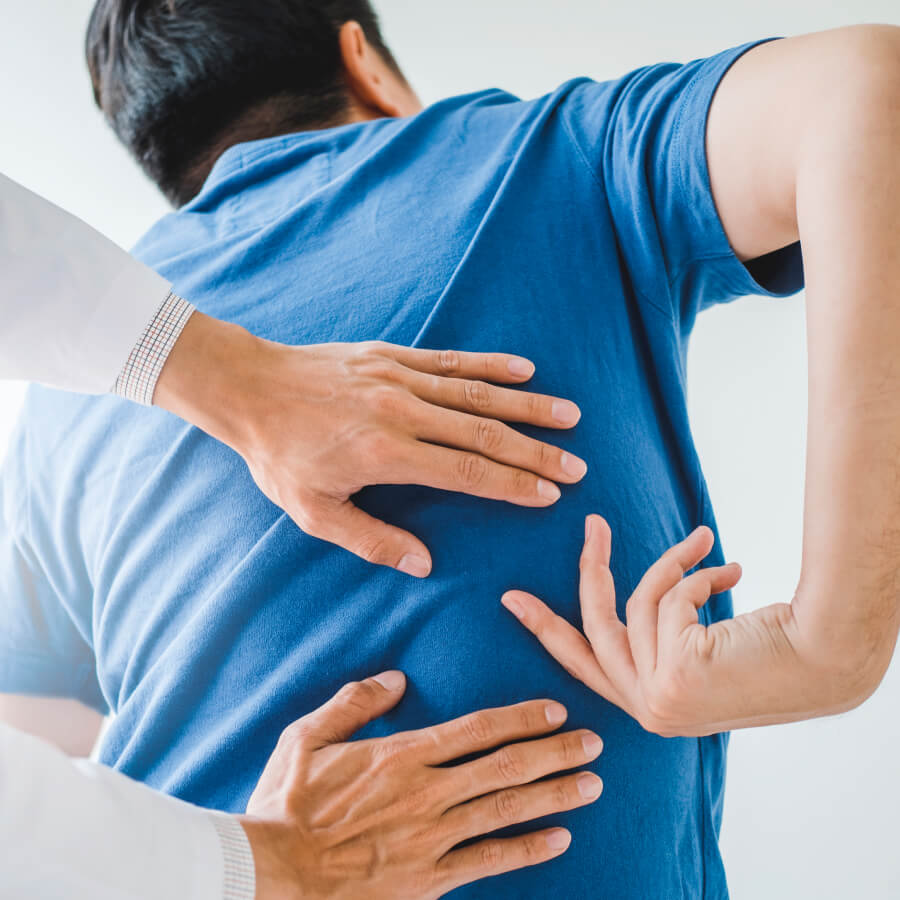What is Spinal Stenosis?
Spinal stenosis is the medical definition for when the spaces in your spine narrow. When this happens, extra pressure can be put on the nerves within the spine, which can cause pain in the neck and lower back. There are two main types of spinal stenosis, and it is possible to end up with one or both at the same time. Lumbar stenosis is the narrowing of the spine in the lower half of the body, and cervical stenosis is the narrowing of the spine in the upper half of the body.
Get Advanced Back & Neck Care
Right In Your Neighborhood
Finding the treatment that’s right for your back and neck problem is our focus at The Orthopedic Health Center. We use non-surgical treatments whenever possible. When you do need surgery, our expert surgeons help you heal faster and with less pain. All right in your neighborhood: Hoboken and Jersey City.
Symptoms

Because the spine is such an important part of the body, any spinal condition left untreated can have long-reaching consequences on the body. If you are experiencing any symptoms of spinal stenosis, it’s best to review with your doctor.
Causes and Risk Factors
Similar to spondylosis, spinal stenosis typically occurs in those who suffer from osteoarthritis, and osteoarthritis leads to wear and tear on the spinal discs. If you have overgrown bones in the spine, bone spurs, herniated discs, thick ligaments or injuries in the spine, or even tumors, you might end up with spinal stenosis. If you are over the age of 50, you are also more likely to suffer from spinal stenosis than someone younger (although younger people can suffer from it as well). Trauma, scoliosis, and genetic diseases that result in muscle and bone development are some of the largest factors when it comes to younger people who suffer from spinal stenosis.
The Most Advanced Surgical Techniques
Take a closer look at the level of care to expect at The Orthopedic Health Center.
Treatment
Your doctor will first examine the issue with a physical examination to see what is being affected by the spinal stenosis, and — depending on the severity — they may upgrade to imaging and even MRI scans.
Once they investigate the issue and learn what spinal injury you might be suffering from, they can recommend specific treatments tailored to your specific situation. Pain relievers (over-the-counter or otherwise) might be recommended for slight symptoms, but depending on the severity of the situation, physical therapy, injections of steroids, decompression procedures, and even surgery might be presented as an option.
Discuss all the treatment plans with your medical professional, to see what will be best for your needs.
Takeaway
Like all spine injuries, getting treatment as quickly as possible is the best way to secure a path to recovery. If you have any worries about your spine, don’t hesitate to contact us. Our team of orthopedic specialists has years of experience treating disorders of the spine, neck, and back. Call us today!
Additional Resources
Appointments available now.
